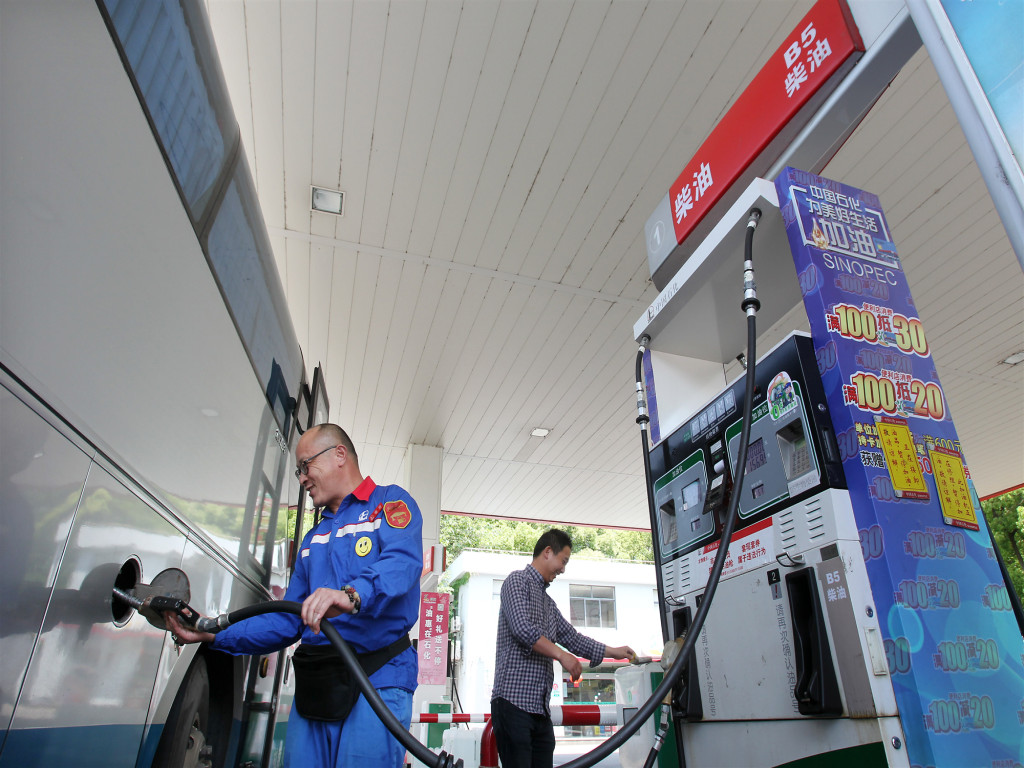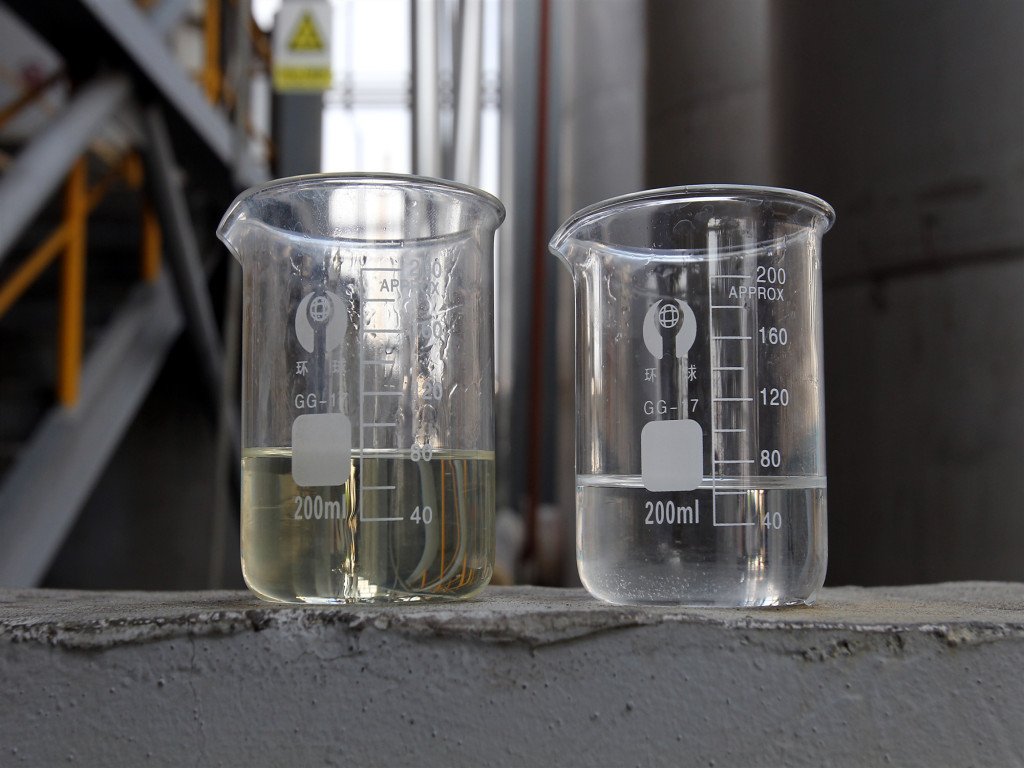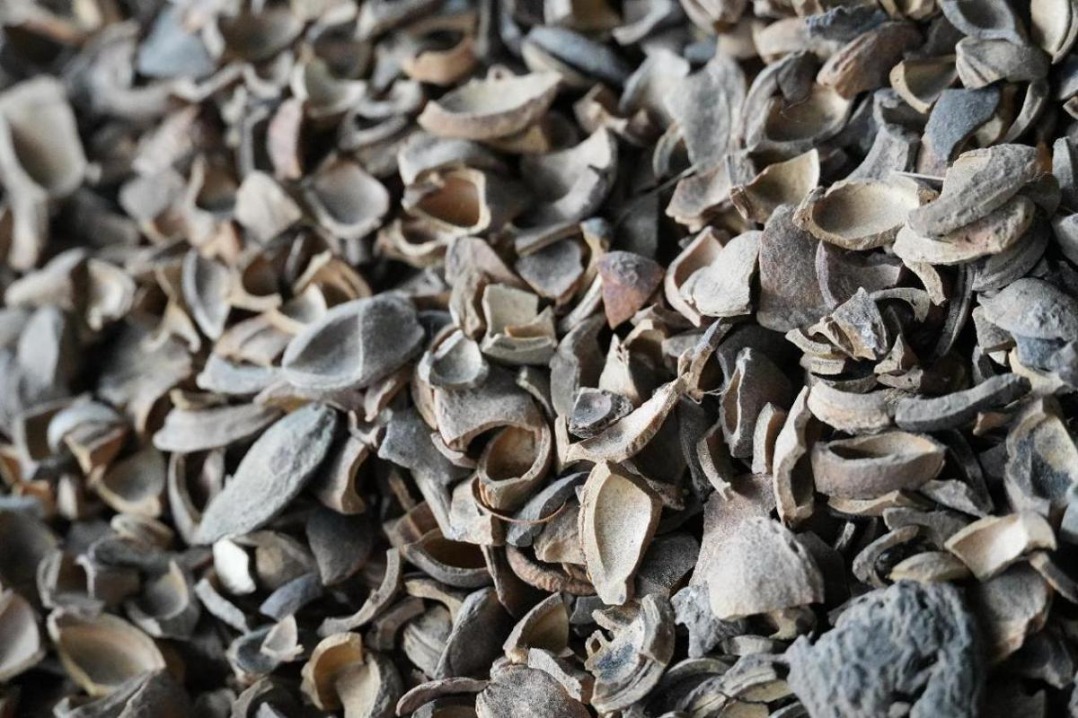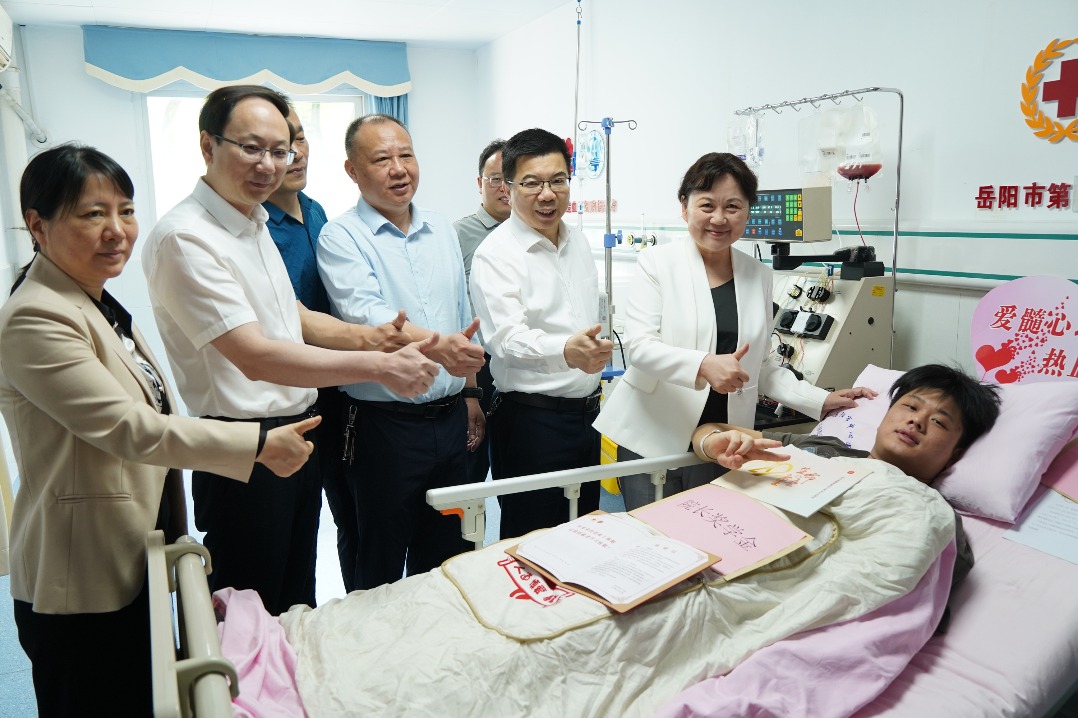Gas-guzzlers go to town on 'gutter oil'


At the Jinfeng gas station on the Shanghai-Hangzhou expressway, biodiesel has become the fuel of choice for a growing number of truck drivers. The reason is simple - the fuel is a few cents cheaper than regular diesel.
However, few of the truckers realize that the biodiesel, called B5, sold at the station comes from restaurants, and is produced from waste cooking oil collected across the city.
At a media briefing held by the Shanghai government on Sept 13, officials announced that the city had built a recycling system in which waste cooking oil - a notorious substance known as "gutter oil" - is collected, synthesized into biodiesel and sold at 40 gas stations.
Yang Jinsong, director of the Shanghai Food and Drug Administration, said an average 150 metric tons of waste cooking oil is collected from restaurants in the city every day. This year, he expects to see about 30,000 tons of biodiesel produced from gutter oil.

The system is the latest response to a scandal in 2011, when media reported that some companies had been illegally producing and selling cooking oil made from gutter waste.
"It means the proper recycling and reuse of gutter oil is now completely interconnected," Yang said.
The new system features monitored waste oil collection and transportation, based on a big data platform.
Every restaurant of more than 150 square meters now has an ID card on which the amount of waste oil it turns in to the collectors every day is recorded and uploaded to the system. In addition, collectors have been issued with cards that will monitor where they transport the waste oil they pick up.
After the data has been uploaded, the platform will alert supervisors if a restaurant has a significant drop in the amount of waste oil it hands in, or it is significantly lower compared with the average at similar restaurants.
"The system has the addresses of all the restaurants, the license plate numbers of the collectors' trucks, the type of waste oil and the time it is collected. By using big data, a few people can then supervise the thousands of restaurants in Shanghai," said Xu Zhen, general manager of Traceability Technology, the company that helped build the monitoring platform.
More than 34,000 food and catering businesses in the city are now registered with the system, he said.
A large proportion of the waste oil is taken to Zhongqi Environment Technology, a company founded in 2005 that specializes in producing biodiesel from cooking oil.
Zhang Xuewang, chairman of the board at Zhongqi, said the company only received about 10,000 tons of waste cooking oil in 2011, but now it gets an average 40,000 tons annually.
After the oil has been treated, the biodiesel is taken to gas stations operated by Sinopec, one of China's leading oil and gas companies, across the city.
To encourage drivers to use the biodiesel, the Shanghai government and the company provide a subsidy to reduce the price at the pump.
"In January, sales at the Jinfeng station, where we initially provided B5 biodiesel, only accounted for 15 percent of the total, but now the figure is 60 percent," said Lyu Wei, deputy general manager of Sinopec Marketing Shanghai Co.
He added that by August, 54 million liters of the fuel had been consumed at the 40 gas stations in the program.
By the end of the year, Sinopec plans to provide B5 at 200 gas stations in Shanghai.
- Xi congratulates president of Togo on assuming office
- China ready to strengthen military-to-military relations with Russia: spokesperson
- New gecko species discovered in South China
- Beijing police step up crackdown on economic crimes
- Xi's article on improving work conduct to be published by Qiushi Journal
- Captive-bred red-crowned cranes in Heilongjiang enter breeding season





































